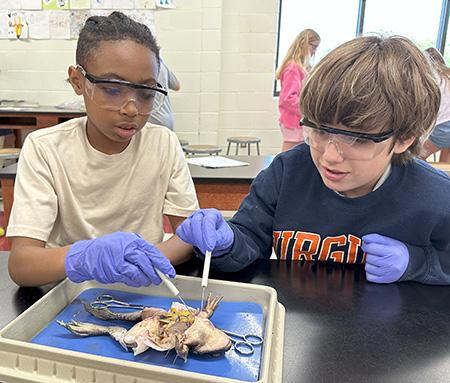Academics
We nurture curiosity and instill a lifelong joy of learning.


Our academic program is both challenging and flexible, with a focus on meeting the individual needs of each student. Over the course of nine years, from kindergarten through eighth grade, students develop sound habits of reading, writing, problem-solving, calculating, experimenting, creating, critical thinking, and reflecting. Our students master the essential skills of time management, organization, research, and presentation before they enter high school. Our graduates are well-prepared for the best secondary programs, possessing skills and habits that continue to serve them well into college and beyond.
Developed by our faculty, our curriculum is thoughtfully designed and consistently reviewed. Our world is not static, and neither is what we teach. We stay current with the latest knowledge, techniques, and technologies to best prepare our students for their next steps. We strive to provide each student with what they need to become the best scholar they can be. We utilize our curriculum and proven teaching methods to empower each student to develop an active, agile mind and a willingness to question and seek solutions.
Please use the expandable sections below to explore our curriculum by age group or by subject.
Developed by our faculty, our curriculum is thoughtfully designed and consistently reviewed. Our world is not static, and neither is what we teach. We stay current with the latest knowledge, techniques, and technologies to best prepare our students for their next steps. We strive to provide each student with what they need to become the best scholar they can be. We utilize our curriculum and proven teaching methods to empower each student to develop an active, agile mind and a willingness to question and seek solutions.
Please use the expandable sections below to explore our curriculum by age group or by subject.
Kindergarten through First Grade
Second through Fourth Grade
Fifth through Eighth Grade
Reading and Language Arts
Mathematics
Science
History and Social Studies
Physical Education
Visual Arts
Performing Arts
Spanish
Technology

